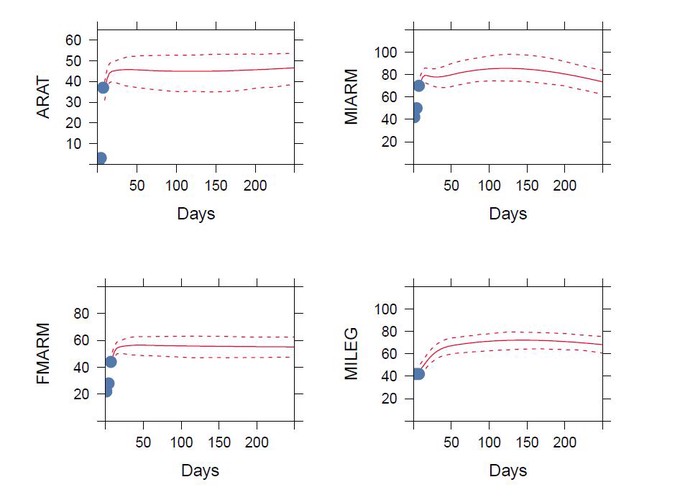Active collaboration with Dr. Ruud Selles, Department of Rehabilitation Medicine and Department of Plastic and Reconstructive Surgery and Hand Surgery in Erasmus MC and Dr. Harm Slijper, medical performance officer of Equipe.
Nowadays stroke is a leading cause of adult disability. Several measures are used in rehabilitation medicine to assess the performance of the patients. Our ultimate goal is to implement individualized dynamic predictions of those measure in Gemstracker which is a software package consisting of different patient information collected during clinical research.
Different type of information is available at each visit such as patients characteristics, upper extremity function but also some other activity measurements. Physicians want to utilize all available data to predict performance measurements six months after stroke. Nowadays, predictions are based on simplistic approaches, such as regression, that ignore the dynamic nature of the disease. A popular framework to analyze repeated measures is the mixed-effects models. We aim to provide dynamic predictions by extending the standard mixed-effects model to account for the special features of the data set.
We focus on how to quantify and evaluate those predictions by investigating different proper scoring rules. To evaluate those predictions we use an internal validation procedure, simulations and external data sets.
Interactive interfaces are created so that the treated physician can obtain dynamic predictions (https://emcbiostatistics.shinyapps.io/DynamicPredictionARATapp/, https://emcbiostatistics.shinyapps.io/LongitudinalMixtureModelFMUE/, https://emcbiostatistics.shinyapps.io/Dynamic_Predictions_Bartel_Index/).
